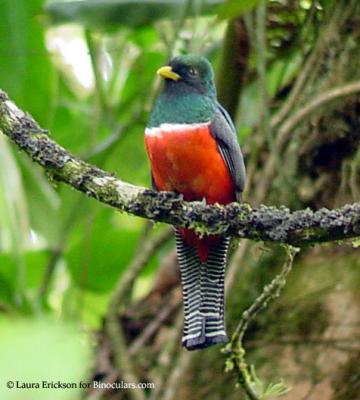National Geographic News reports:

National Geographic News reports:World's Largest Gas Pipeline Proposed to Run Through Amazon
Kelly Hearn
for National Geographic News
January 4, 2007
Plans to build the world's largest natural gas pipeline through 5,000 miles (8,047 kilometers) of South American wilderness are prompting warnings of environmental calamity.
Known as Gasoducto del Sur, or Southern Gas Pipeline, the proposed 21-billion-dollar (U.S.) structure would connect Venezuela's rich natural gas fields to Argentine markets.
But to do this the pipeline would have to cross through several ecologically vulnerable regions, including Brazil's Amazon rain forest (map of South America).
Such a project would threaten both the environment and local cultures, activist groups contend.
"This plan is a gigantic threat to fishing and farming communities, from the Gulf of Paria [between northeastern Venezuela and the island of Trinidad] all the way to the Great Savannah, which is part of the Canaima National Park," said Maria Eugenia Bustamante, co-director of AMIGRANSA, a Venezuelan environmental group.
Venezuelan President Hugo Chavez, who won reelection on December 3, has touted the pipeline as a way to stave off regional gas shortages, integrate the continent's energy networks, and sidestep economic dependence on the United States.
Chavez recently recognized the plan's environmental threats, but says that regional governments should still move forward.
"It is a necessity," he said during a visit to Bolivia on December 9. "If we don't do it, it will be worse, because by 2020 there will be a frightening energy crisis in Argentina, Brazil, and Uruguay." Immediately after his election victory, the firebrand leader traveled to Brazil, Argentina, and Bolivia to promote the pipeline plan.In a December 7 meeting with Brazilian President Luiz Inacio Lula da Silva, Chavez called the pipeline "the most important project ever contemplated for the continent." and on December 9 in Cochabamba, Bolivia, Chavez said the ambitious plan must also link to Bolivia's natural gas fields.
Venezuela and Bolivia respectively contain the continent's largest natural gas reserves.
Leftist leaders in Brazil and Argentina have shown support for the project on various occasions but haven't yet officially backed the plan.
Meanwhile Brazilian environmentalists are questioning the proposal's impact on that country's already threatened Amazon region.
"We are particularly concerned over the inflow of [human] migration into the areas the pipeline would cross," said Roberto Smeraldi, director of the Brazil branch of the advocacy group Friends of the Earth.
"The process of colonization will bring environmental problems into new frontiers. This all implies deforestation and occupation of this land—an explosive situation."
(Related photo: "Nigeria Pipeline Explosion Incinerates Hundreds" [December 26, 2006].)
Atossa Soltani is executive director of Amazon Watch, a U.S.-based watchdog group.
"This pipeline will unleash major environmental, cultural, and social impacts on the Amazon rain forest and on local populations," Soltani said.
She said the project promises big damage "over the next 20 or 30 years, as new offshoots of the pipeline could fuel and enable energy-intensive industries to expand in relatively pristine and ecologically fragile areas of the Amazon rain forest."
Not Sustainable?
Some industry studies have shown that shipping natural gas via pipeline ceases to be profitable at distances greater than 1,865 miles (3,000 kilometers)—proof, opponents say, that the plan is not a sound energy strategy.
Smeraldi, of Friends of the Earth, said the plan is purely political and that the Chavez government has failed to show whether its gas reserves are even sustainable.
"They don't have an economic feasibility study, and Venezuela so far has never made public any estimates about the size and the likely duration of the gas reserves," he said.
"How do you convince an investor to put money into something without that information?"
In November Marcio Zimmermann, secretary for energy planning at Brazil's Ministry of Mines and Energy, was quoted by Brazilian media saying that the pipeline may only extend to the north of Brazil until Venezuela assures involved parties that its gas supply is sufficient to continue southward.
"First we studied the plan in its entirety," Zimmermann said, "and now we are studying the possibility to doing it in stages based on the availability of Venezuelan gas."
0 comentarios